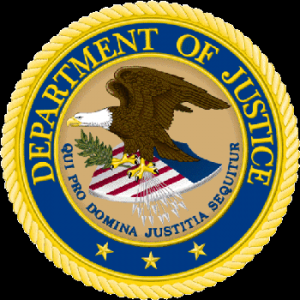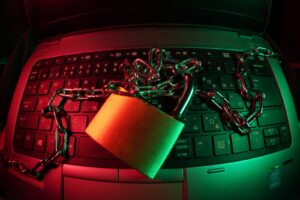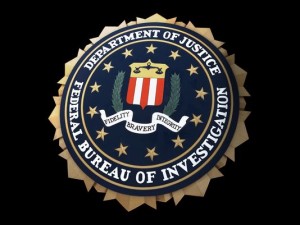LOS ANGELES
 An Inland Empire man was arrested for allegedly stealing sensitive technologies from his Southern California-based employers, officials stated.
An Inland Empire man was arrested for allegedly stealing sensitive technologies from his Southern California-based employers, officials stated.
According to authorities, Liming Li allegedly used the stolen technology to market his competing company to businesses in the People’s Republic of China.
Li, 64, of Rancho Cucamonga, is charged with theft of trade secrets.
Li was arrested at Ontario International Airport on May 6 after arriving on a flight from Taiwan.
Since his arrest, Li has been in federal custody.
“Li stole thousands of files of sensitive technology that did not belong to him and used it to help foreign companies build competing technology – technology that could be used in the manufacture of nuclear submarines and military aircraft,” said United States Attorney Martin Estrada. “Protecting our nation’s national security is paramount, and my office will aggressively investigate and prosecute those who misappropriate sensitive intellectual property to the benefit of foreign actors.”
The case against Li was brought under the auspices of the Disruptive Technology Strike Force, which is co-led by the Departments of Justice and Commerce.
 The Strike Force seeks to counter efforts by hostile nation-states to illicitly acquire sensitive U.S. technology to advance their authoritarian regimes and facilitate human rights abuses.
The Strike Force seeks to counter efforts by hostile nation-states to illicitly acquire sensitive U.S. technology to advance their authoritarian regimes and facilitate human rights abuses.
The case against Li is one of five announced this morning at a news conference at the Department of Justice. Officials detailed cases against defendants accused of crimes that include export violations, smuggling, and theft of trade secrets.
According to an affidavit filed with the complaint filed in Los Angeles, from 1996 to November 2019, Li worked in various engineering, management and software development roles for two companies in Southern California.
 The companies are identified in court documents as “Company #1” and “Company #2.”
The companies are identified in court documents as “Company #1” and “Company #2.”
These software programs are related to high-precision measurement studies interpretation and point cloud technology, often used in 3D models.
They can be used in various sensitive manufacturing contexts, including parts for nuclear submarines and military aircraft, and are subject to United States export controls for national security, nuclear nonproliferation, and anti-terrorism.
As a result of its military application, federal law mandates that this software cannot be exported to China without a license from the Department of Commerce.
Li worked for Company #1 from 1996 to 2018 and then worked at Company #2 from 2018 until November 2019.
Shortly before beginning his employment with Company #2, Li and his wife established their own business, JSL Innovations, which was based out of their Rancho Cucamonga home.
After Company #2 terminated Li, company security discovered that Li was using his company-issued laptop to attempt to download files from Company #2’s root directory onto his personal external hard drive, according to the complaint affidavit.
Company security searched Li’s company-issued laptop and found a folder labeled “ChinaGovernment.”
That folder allegedly contained numerous documents showing Li’s efforts to participate in the PRC’s Thousand Talents Program and to use JSL Innovations to provide services and technology to PRC business and government entities related to the export-controlled and trade secret technology Li took from his former employers in Southern California.
In March 2020, Li entered into an agreement with a PRC-based manufacturing company to serve as its chief technology officer.
Li’s agreement with this employer required him to spend at least six months per year in the PRC.
Six months later, FBI agents executed a search warrant at LI’s home and found numerous digital devices containing millions of files belonging to Company #1 and Company #2 and containing the source code for those companies’ proprietary software, the complaint alleges.
Although the source code files had been developed by and belonged to these companies, some of the files had been moved into folders labeled “JSL” or “JSL Projects.”
Both Company #1 and Company #2 derive significant value from the secrecy of their proprietary software source code and take extensive steps to protect the source code from discovery by competitors.
All defendants are presumed innocent unless proven guilty.
If convicted, Li faces up to10 years in federal prison.
The FBI is investigating this matter.
Assistant U.S. Attorneys Solomon Kim of the Terrorism and Export Crimes Section; David Ryan, Chief of the Terrorism and Export Crimes Section; Aaron Frumkin of the Cyber and Intellectual Property Crime Section; and Trial Attorney Stephen Marzen of the Justice Department’s National Security Division’s Counterintelligence and Export Control Section are prosecuting the case.
The Disruptive Technology Strike Force is an interagency law enforcement strike force co-led by the Departments of Justice and Commerce
. It is designed to target illicit actors, protect supply chains, and prevent critical technology from being acquired by authoritarian regimes and hostile nation-states.
Under the leadership of the Assistant Attorney General for National Security and the Assistant Secretary of Commerce for Export Enforcement, the Strike Force leverages tools and authorities across the U.S. Government to enhance the criminal and administrative enforcement of export control laws.

